The Laboratory of Contemporary Art
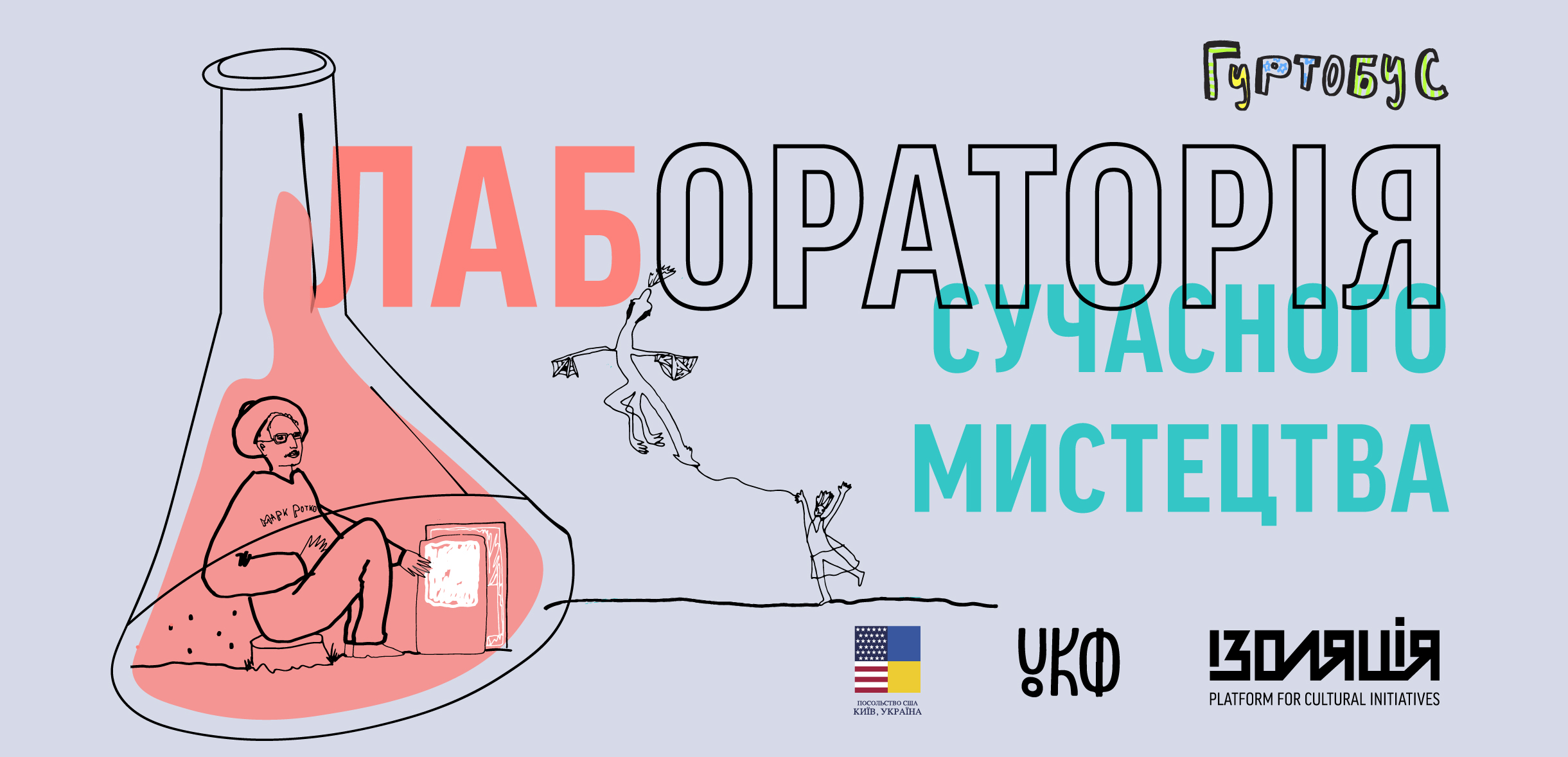
15 July 2020 — 30 December 2020
The Laboratory of Contemporary Art is a series of manuals that in an accessible way tell about the theory of contemporary art practices in with attached tasks for children and young adults that will be useful not only to the professional community, but also to amateurs. The publication of each manual will be linked and occasionally devoted to online seminars for representatives of regional educational initiatives, where they can get acquainted with art practice, methods, ideas for implementation and will have the opportunity to communicate with artists and curators.
The project aims to support the decentralization of informal art education for children and young adults and will be the online part of mobile cultural center Gurtobus / Community Culture Bus of IZOLYATSIA (supported by the US Embassy in Kyiv). In 2019, Gurtobus visited 24 cities in 14 regions of Ukraine with artistic and educational events. Gurtobus aims to support sustainability of Gurtobus, showing how its program activities could be implemented by local institutions, in particular those of them that have already been local partners of Gurtobus.
The project is implemented with the support of Ukrainian Cultural Foundation. The Ukrainian Cultural Foundation is a state institution established in 2017 as a new model of providing state support and promotion of initiatives in culture and creative industries on a competitive basis. According to the current legislation, the Foundation’s activities are directed and coordinated by the Ministry of Culture and Information Policy of Ukraine. Website: https://ucf.in.ua, facebook: https://www.facebook.com/ucf.ua.
Below you can find out more about the topics of the manuals and read them in a PDF format.
The Biographies of Things: how to talk about history through objects and imprints
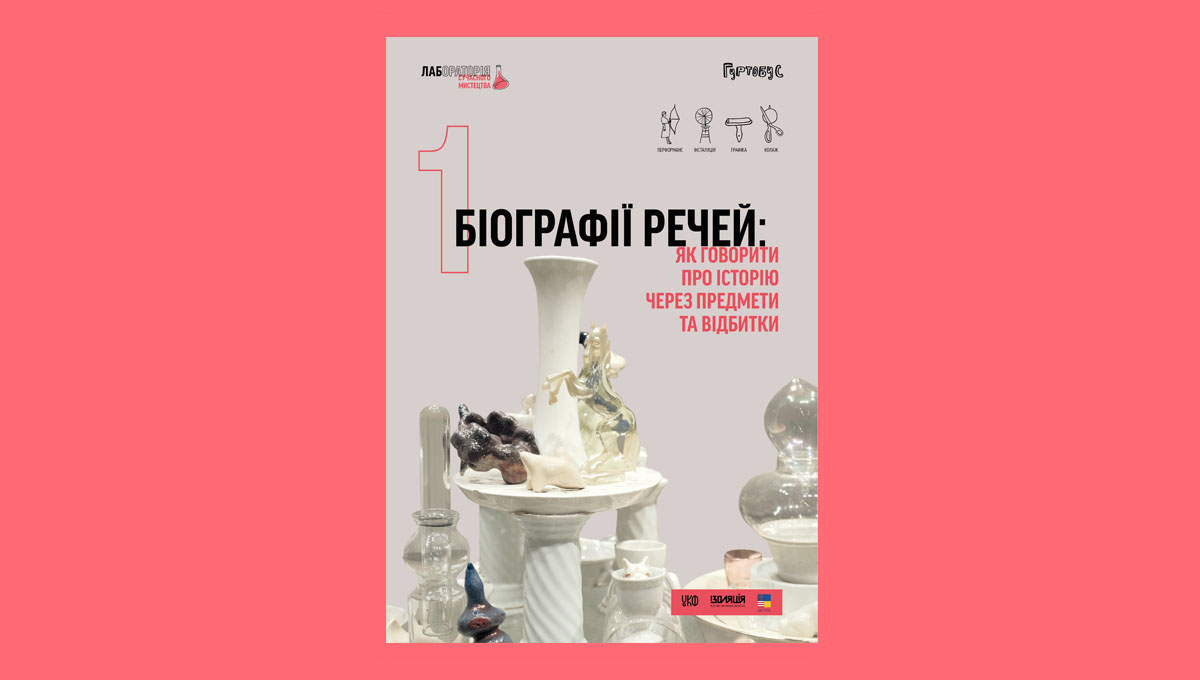
The first installment of Laboratory of Contemporary Art continues the theme of Family Album which is central to the current season of the Gurtobus mobile cultural centre. The booklet describes work with historical memory through personal recollections and the combination of objects, both new and found — in attics, in the sideboard, at a flea market —, having its basis in Dmytro Krasnyi’s artistic practice.
How can one research family history alongside adolescents through working with archives and found objects? The method presented in the brochure combines readymades, sculpture, installation art, graphic design and photography.
Local Musical Identity: Sound-art and sound-research
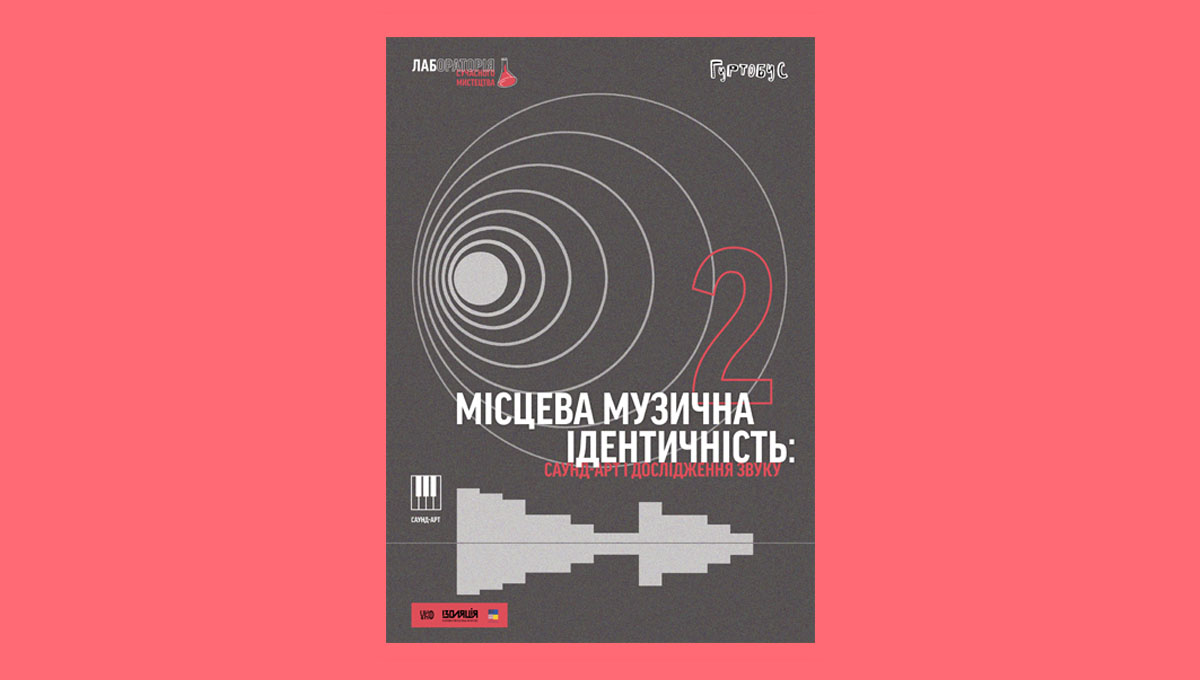
In the booklet, there is a section detailing the recording, structuring and archiving of regional sonic phenomena — from folk, mythology, historical legacy to industrial and street noise. How can we reinterpret that which we hear every day and form a local audio picture from the sounds gathered. The brochure’s narrative will be formed from a mixture of sociological observations, sensations, sounds and the experience of sound-artists Evhen Hordeev. What is sound art and sound performance? How can we research sound with the help of improvised means and how can we include new works with sounds in a programme of alternative musical education?
Digital Feelings: body and touch in media-art
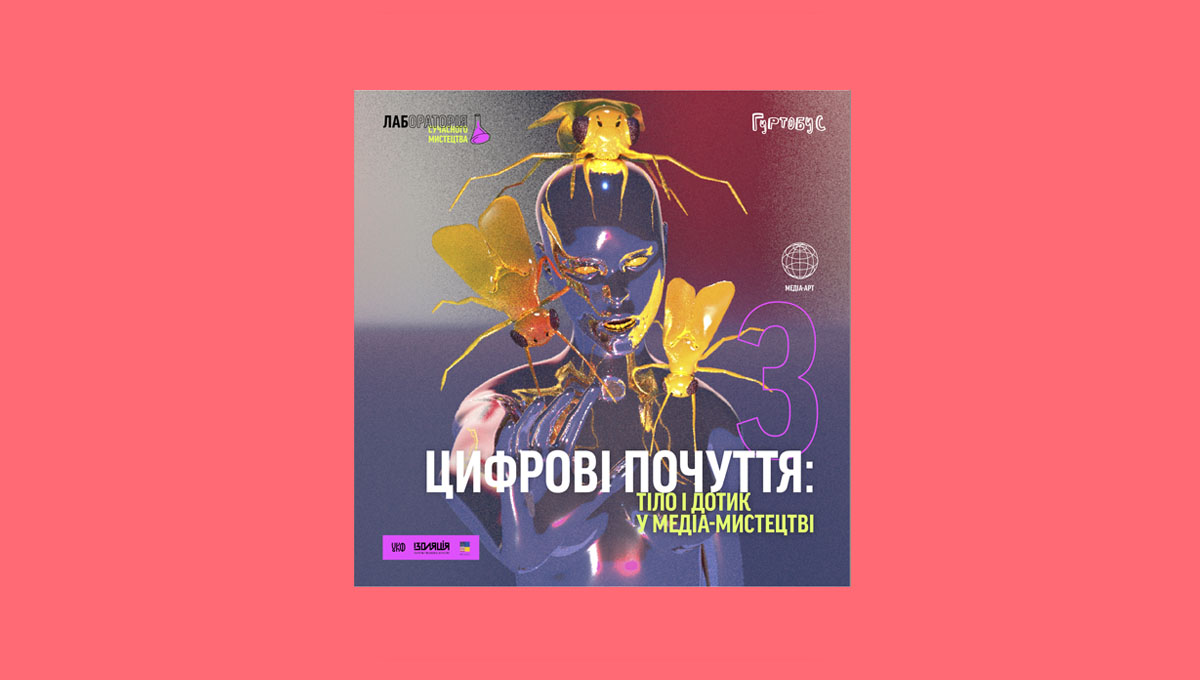
This installment will be dedicated to themes of the post-human, virtual spaces, corporeality and ecology. What is media art and how can it be practiced in basic artistic education, both professional and amateur? Using the artist Anna Manankina’s projects as examples, in this installment discussion will be about how it is possible to speak about the ecological crisis through digital media and how to work with this topic using collective virtual practices.
Contemporary Art for Teenagers: working with space and samizdat
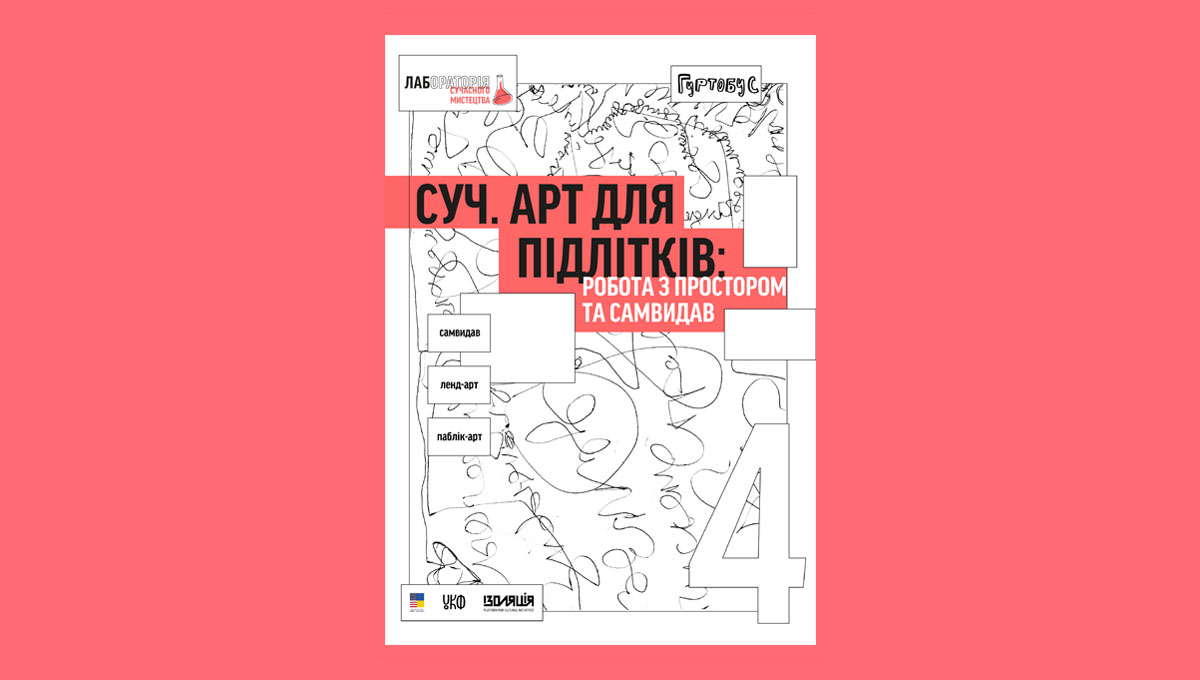
In the booklet, the artists Olha Poliak and Maria Ahisian systematize their experience of mentoring the adolescent art group Zwanzig Partisanen. What methods do the artists use in alternative basic artistic instruction? How can we research space with children through land art and readymades? The booklet will also describe the other practice of Zwanzig Partisanen — samizdat — with step-by-step instructions and advice.
У брошурі художниці Ольга Поляк і Марія Агісян систематизують свій досвід наставництва у підлітковій арт-групі Zwanzig Partisanen. Які методи художниці використовують в альтернативній початковій художній освіті? Як разом із підлітками досліджувати простір через ленд-арт і реді-мейд? Брошура також розповідатиме про іншу практику Zwanzig Partisanen — самвидав, — із покроковими інструкціями та порадами.
(Un)identical Generations: the optics of photography
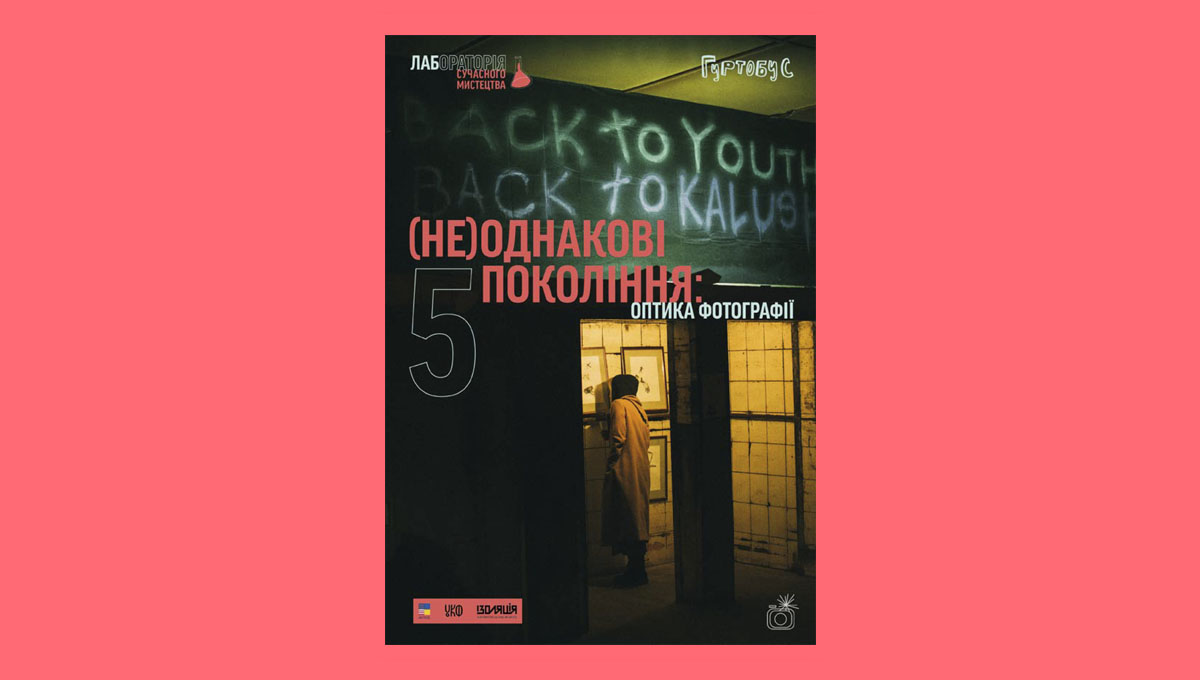
What makes each new generation unique: the specific context or a gap in the system of knowledge transfer that forces them to start ‘from a blank canvas’ each time? What does the (non-)uniformity of generations consist in, and how can this be captured with the lens of a camera? Anna Potemkina, a curator of Laboratory of Contemporary Art, and the artist-photographer Anton Malinovskiy try and illustrate the latter and analyze these questions through the work of Anton himself, as well as that of other people working in contemporary Ukrainian photography.
Що робить кожне нове покоління унікальним — контекст чи прогалина у системі передачі знань, що змушує щоразу починати “з нового аркуша”? У чому (не)однаковість поколінь і як її можна вловити об’єктивом фотоапарату? У п'ятому номері Лабораторії сучасного мистецтва кураторка Анна Потьомкіна та художник-фотограф Антон Малиновський дають відповіді на ці питання через роботи самого Антона та інших прикладів з сучасної української фотографії.
Creativity as a game: theater and performance for children
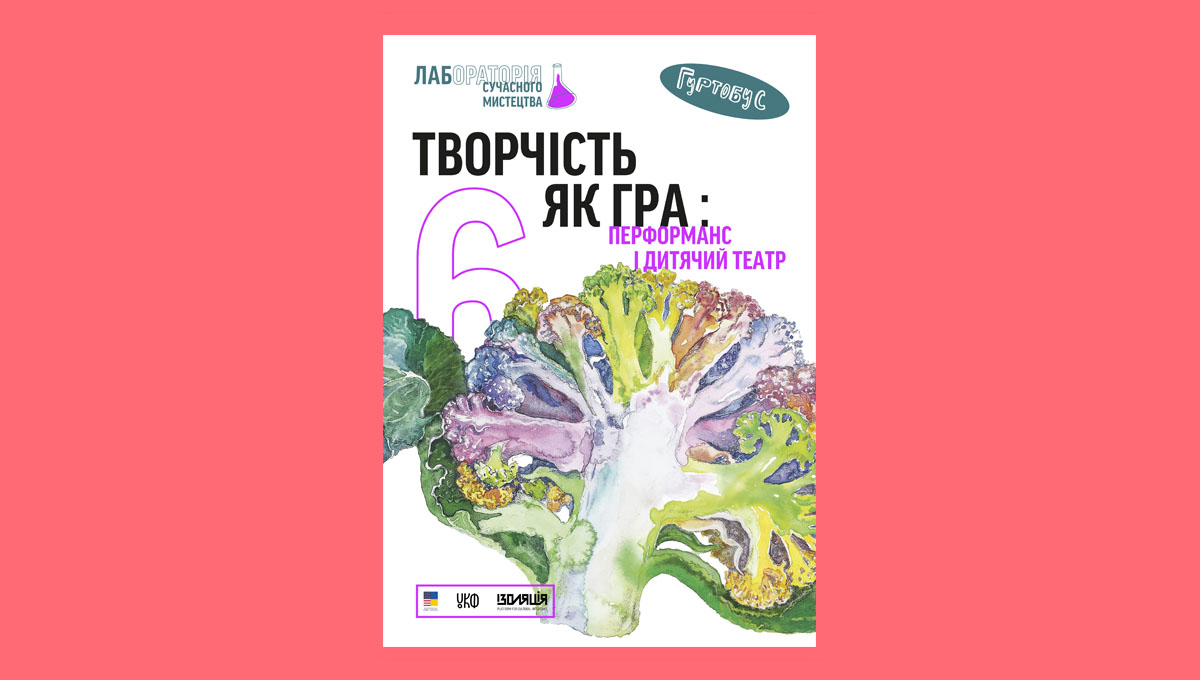
The authors of the brochure, Maria Kolomiets and Yehor Martynenko talk about the methods of work of Kolyorova Kapusta, an art space which exists as an open platform for children's creativity in Kharkiv. Kapusta’s approach is to abolish the opposition between the pupil and the teacher. According to this principle, children in the educational process act as authors, creating their own artistic expression. How to reveal the creative potential of a child, synthesizing art forms, turning it into a free and exciting game? How to make art by communication between parents and children?
The brochure talks about the main practices of Kolyorova Kapusta — theater, street installations and performance.
White Cube: create your own exhibition
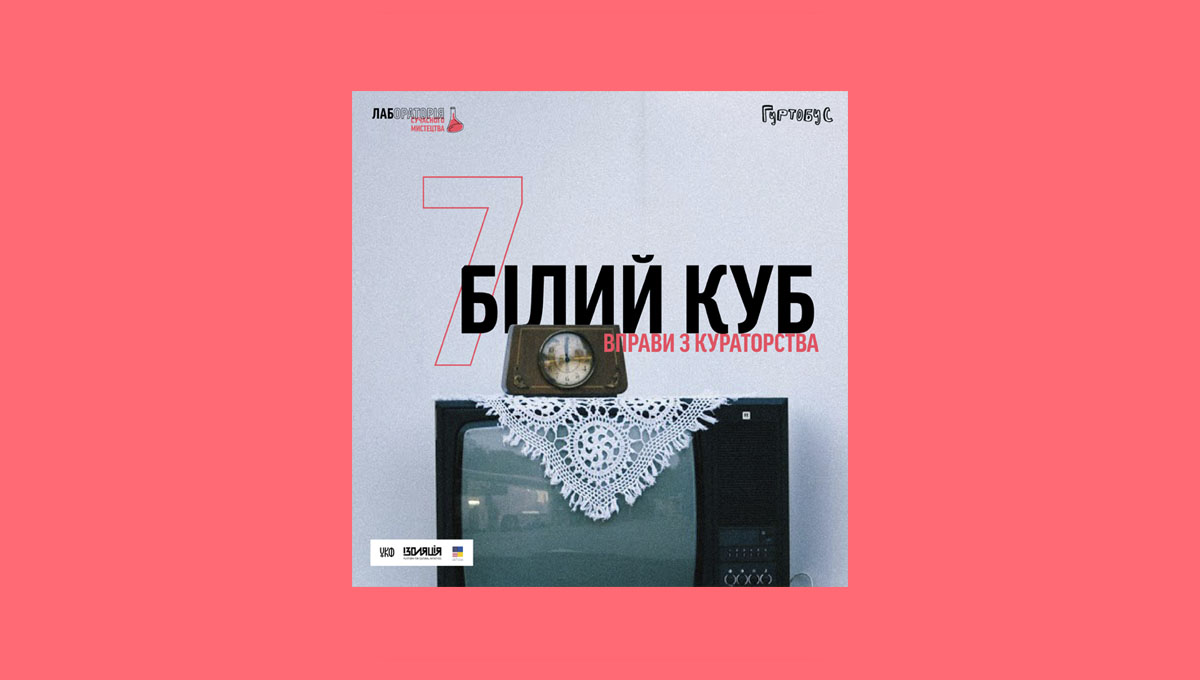
The last edition of Laboratory of Contemporary Art is dedicated to the history of curatorial activity and the white cube: the sterile white gallery space, which our eye is now accustomed to, with walls painted neutral colours and artificial (although not always) lighting. It is the white cube that most often arises in the imagination when we hear the phrase ‘contemporary art’. The booklet will describe, in an accessible format, how this exhibition concept appeared and how it was criticised, and how it can be used for a workshop on curatorial activity for children*.
The printed version of the booklet will contain an interactive poster with stencils of a white cube, created in partnership with the independent art and culture publication VONO.
*The White Cube workshop was one of the most popular activities from the first season of trips made by the Gurtobus, a mobile cultural centre by the IZOLYATSIA.